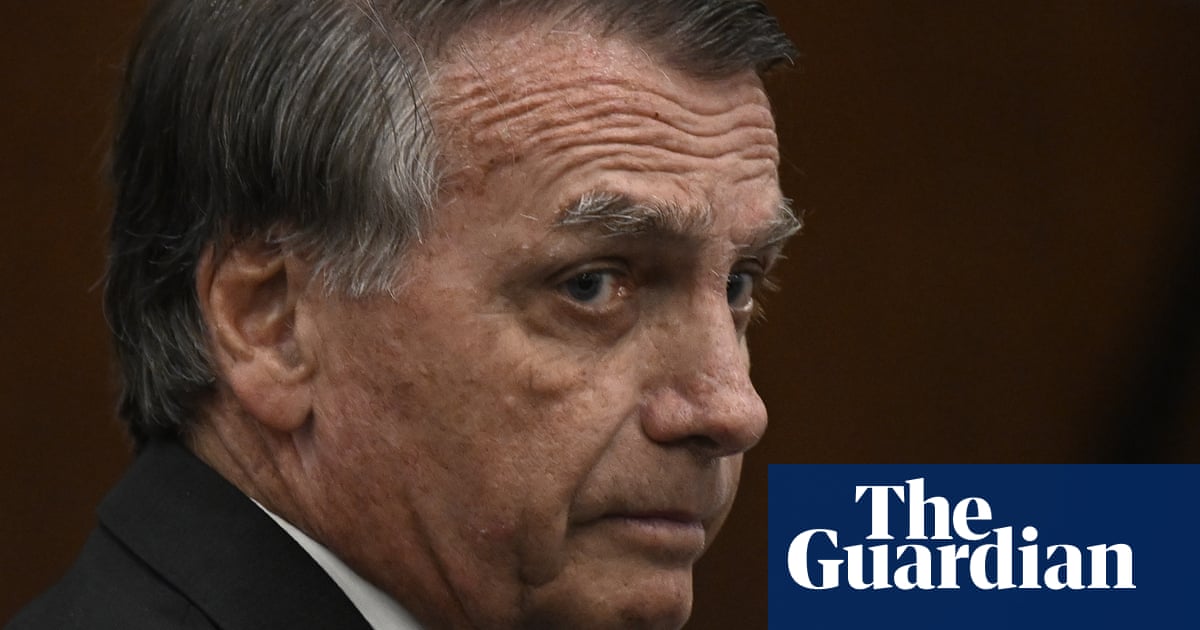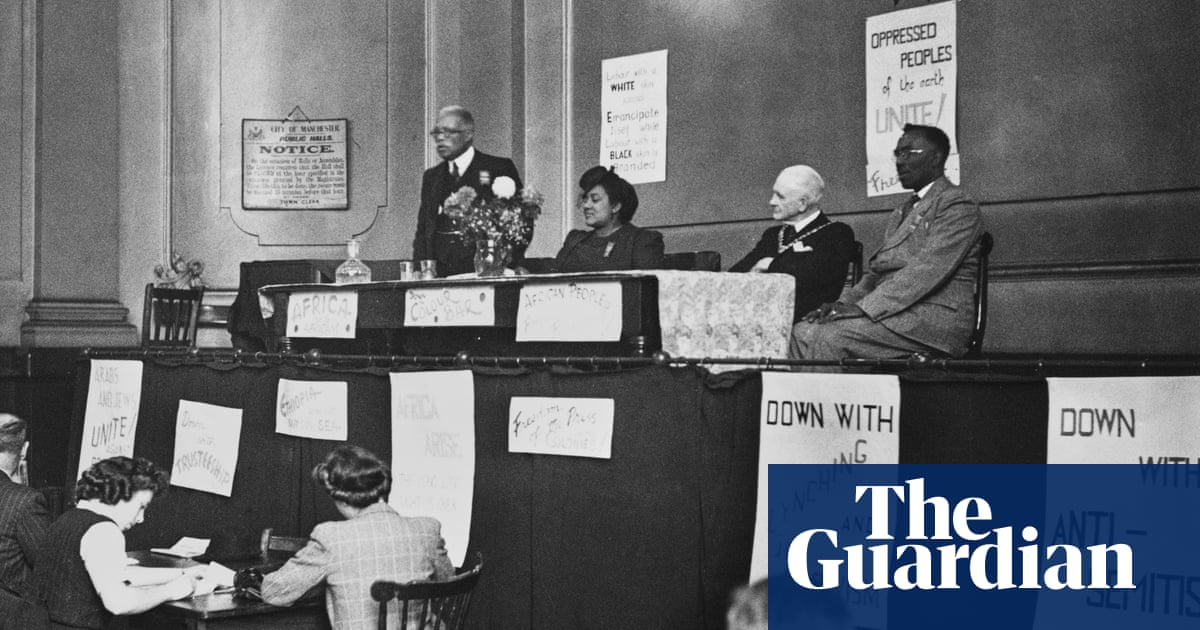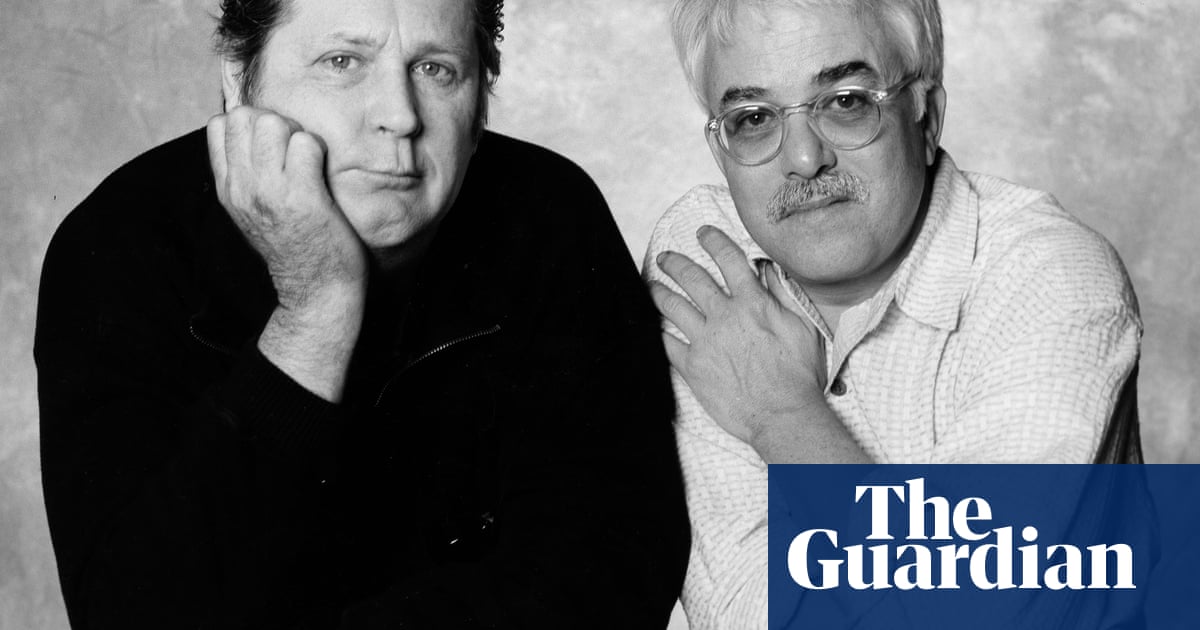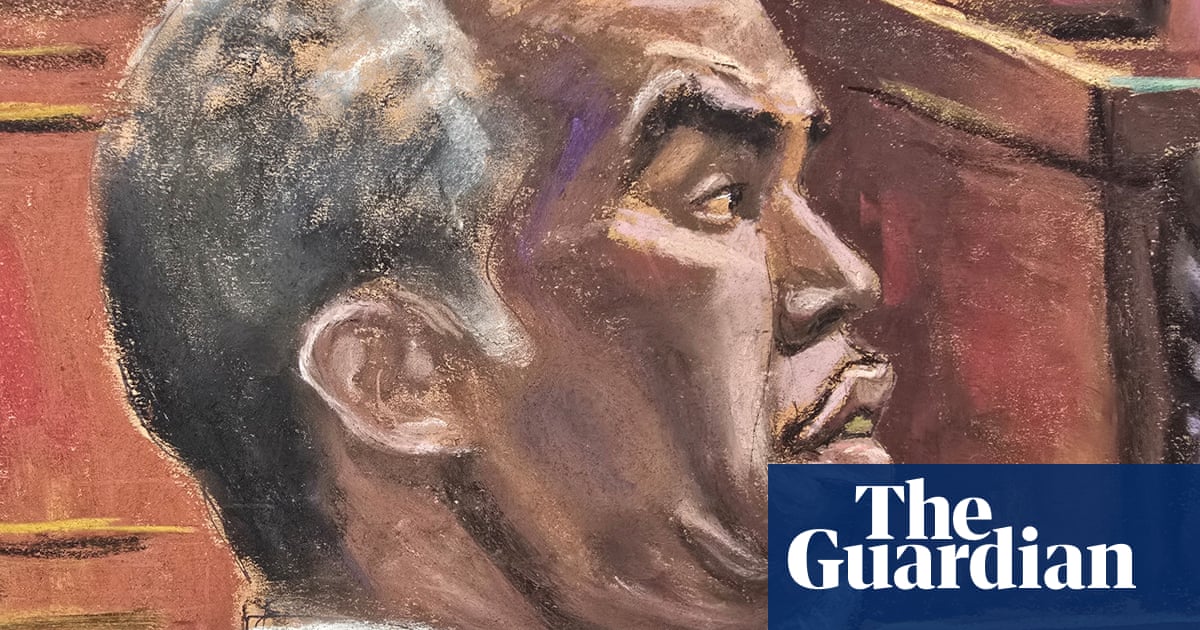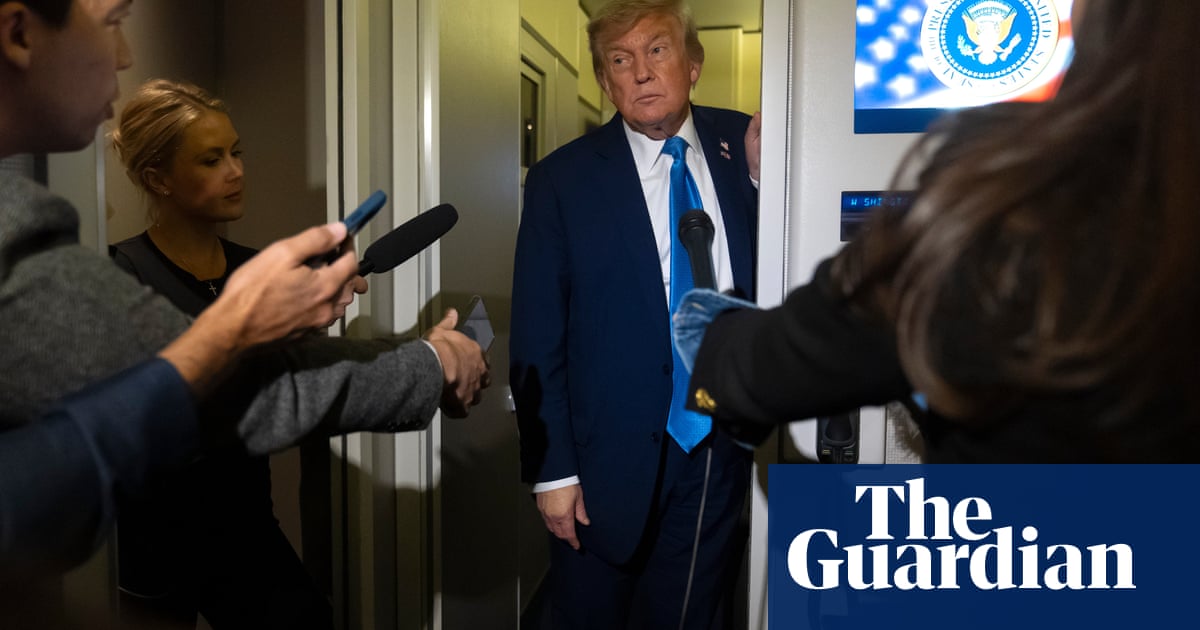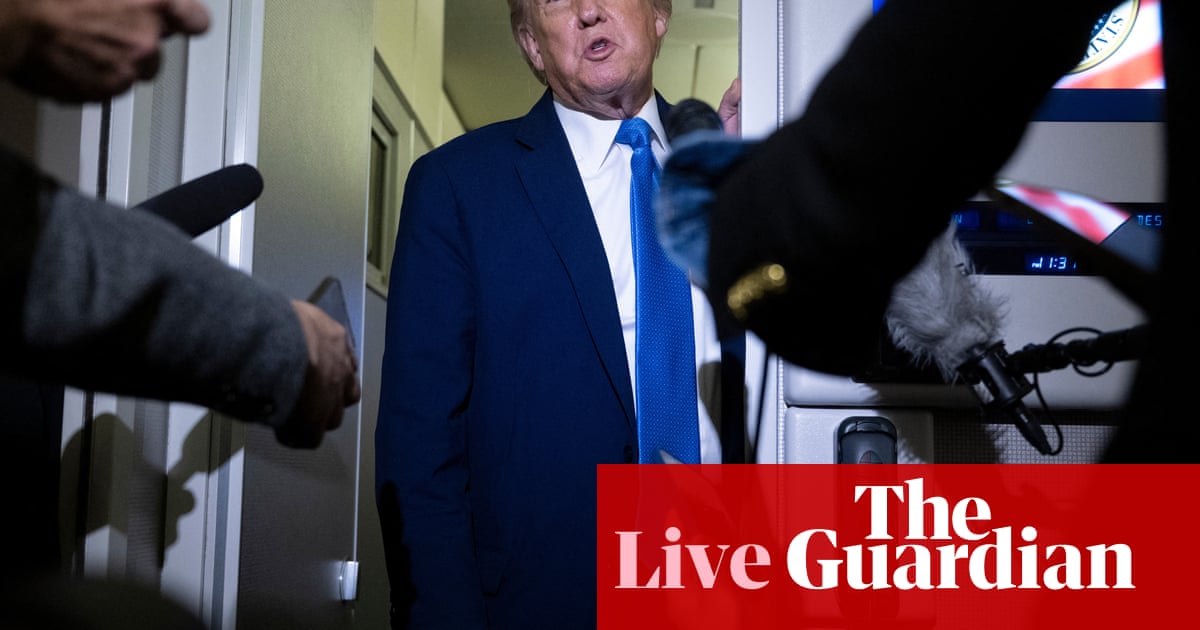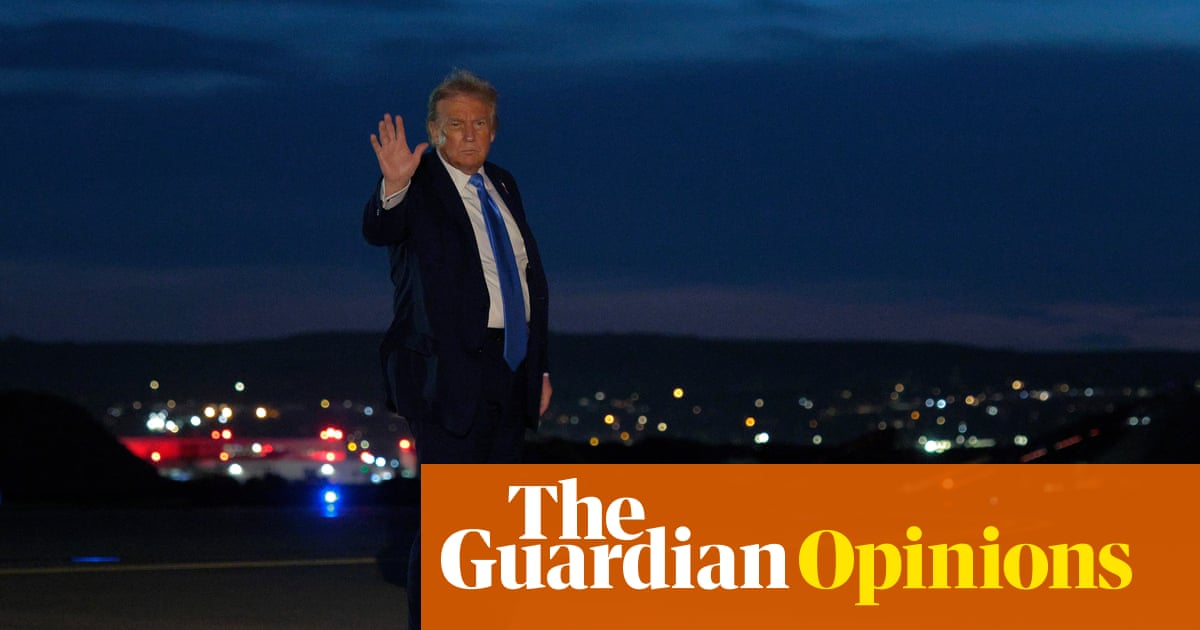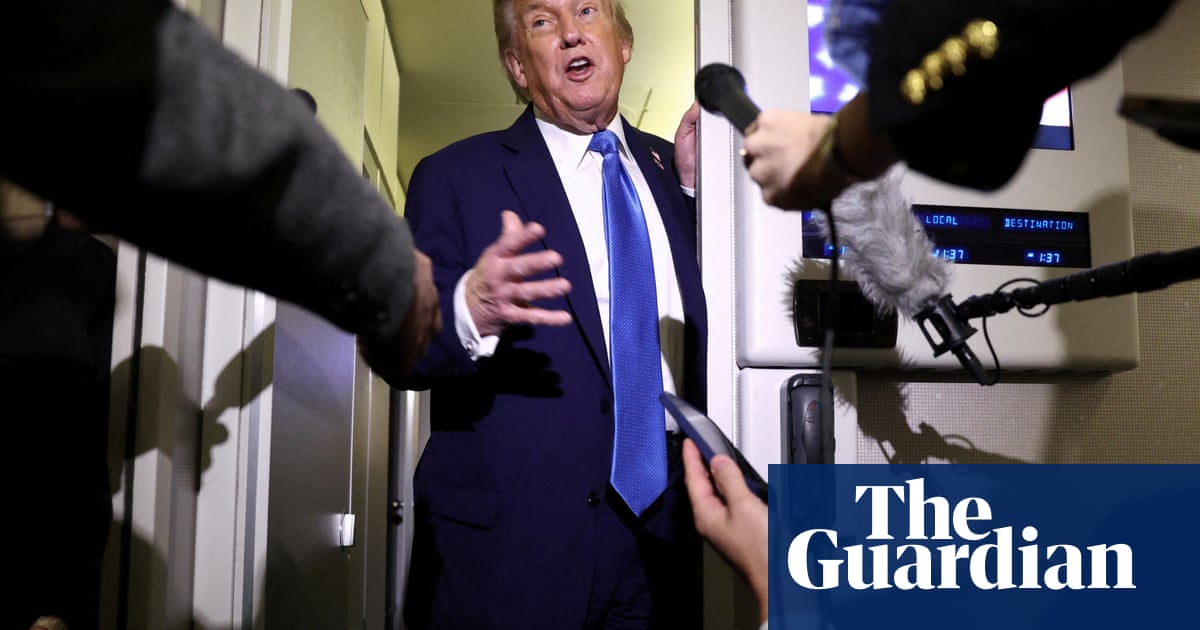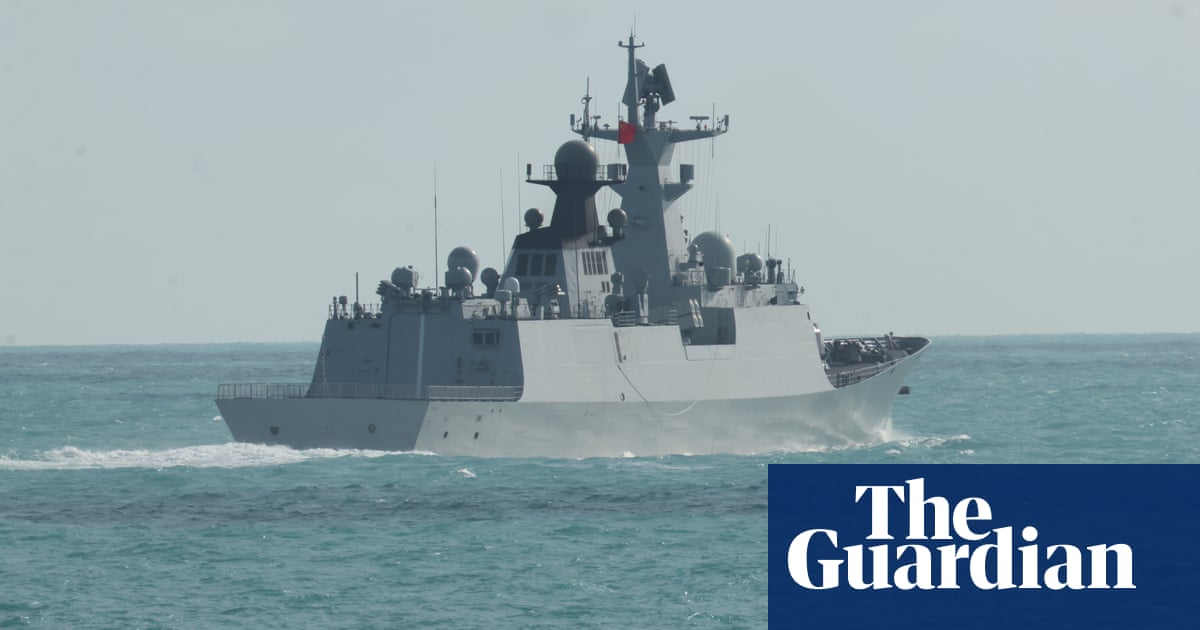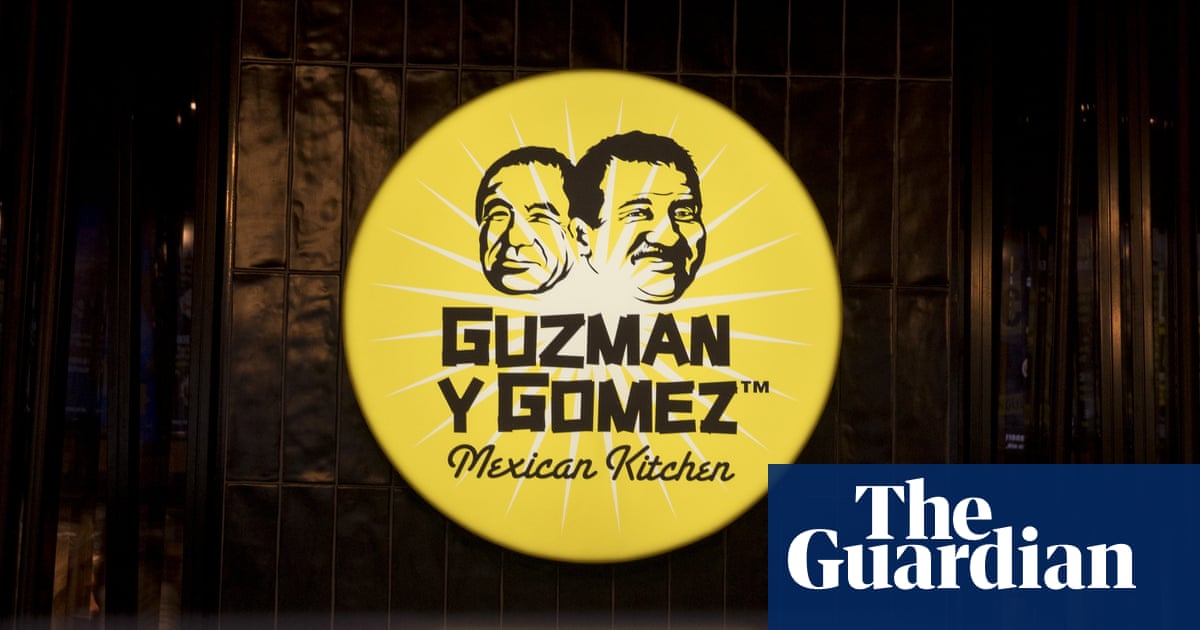When the world’s finance ministers and central bank governors gather at the International Monetary Fund in Washington this week, it may kindle memories of another meeting, also held against the backdrop of a global economic crisis, in autumn 2008.
Then, as the aftershocks from the collapse of Lehman Brothers ripped through financial markets, central banks coordinated drastic emergency rate cuts, and the UK chancellor, Alistair Darling, urged his G7 counterparts to emulate the UK’s approach and shore up stricken banks.
Policy mistakes, including lax financial regulation, were partly to blame back in 2008 – but as this week’s IMF and World Bank spring meetings convene, the chaos confronting key decision-makers in the global economy has been entirely manufactured in the White House.
Donald Trump’s arbitrary “reciprocal” tariffs have been paused for 90 days, with many governments hoping they will never be reinstated. But the 10% across-the-board levy that remains in place – alongside eye-watering increases in tariffs on the US’s great geopolitical rival, China – still represents a historic shock to the global trading system.
The IMF, like just about every other credible economic forecaster, is likely to use its latest World Economic Outlook on Tuesday to warn of the hit to growth. The Fund’s managing director, Kristalina Georgieva, has already suggested the policy poses “a significant risk to the global outlook”.
Given the nature of the crisis, however, a united front, akin to that assembled in 2008, will be impossible.
Instead, different G7 economies are all trying to manage Trump’s administration in their own way. The UK government has declined to criticise the White House openly, and is clinging to the shreds of the “special relationship” – negotiating furiously in the hope the tariffs will be lifted.
The EU, facing a 20% levy if the full tariffs are reintroduced, plans to retaliate. Mark Carney, the former Bank of England governor now leading Canada, is taking an aggressive, “elbows up” approach, as he calls it, warning voters in the looming election that the relationship between the two nations is irrevocably damaged.
This cacophonous response is part of the chaos Trump appeared to relish unleashing when he brandished his tariffs scorecard in the White House rose garden earlier this month.

It is hard to imagine anything but the most anodyne statement being agreed by G7 finance ministers, a group that will include Trump’s treasury secretary, the former hedge fund manager Scott Bessent. As a foretaste of Bessent’s likely approach to his counterparts, he used a meeting with the Spanish economy minister, Carlos Cuerpo, to attack Madrid for failing to spend enough on defence.
And as central bankers consider the outlook for wobbly bond markets and the potential risks to financial stability, meanwhile the independence of Federal Reserve chair, Jay Powell, long a target of Trump’s criticism, appears less than secure. Given the importance of the dollar’s role, the Fed has previously been at the heart of efforts to safeguard the global financial system. It is unclear to what extent they would be ready to play the same role in a future crisis.
Gordon Brown, who was central to the global response to the 2008 crash, has called for a “coalition of the willing” to deepen trade ties between countries outside the US and protect the world’s poorest countries from the impact of the policy.
In the past, the G7 has sometimes been the locus for such collective action. But this week’s meeting is happening less than a mile from the White House, where Trump’s trade policy is continuing to evolve, one blustering press conference at a time.
Multilateral institutions, such as the IMF and its development-focused sister the World Bank, are also likely to be targets of the Trump administration’s determination to rip up the current world order, and cut funding for any institution that fails to put “America first”.
It remains to be seen whether any of the global policymakers assembling in Washington are willing to set out an alternative vision to Trump’s – but even if they don’t, the clash between the US and the rest of the world will be on clear display; and, as in 2008, the omens for the global economy look bleak.

 1 month ago
31
1 month ago
31
